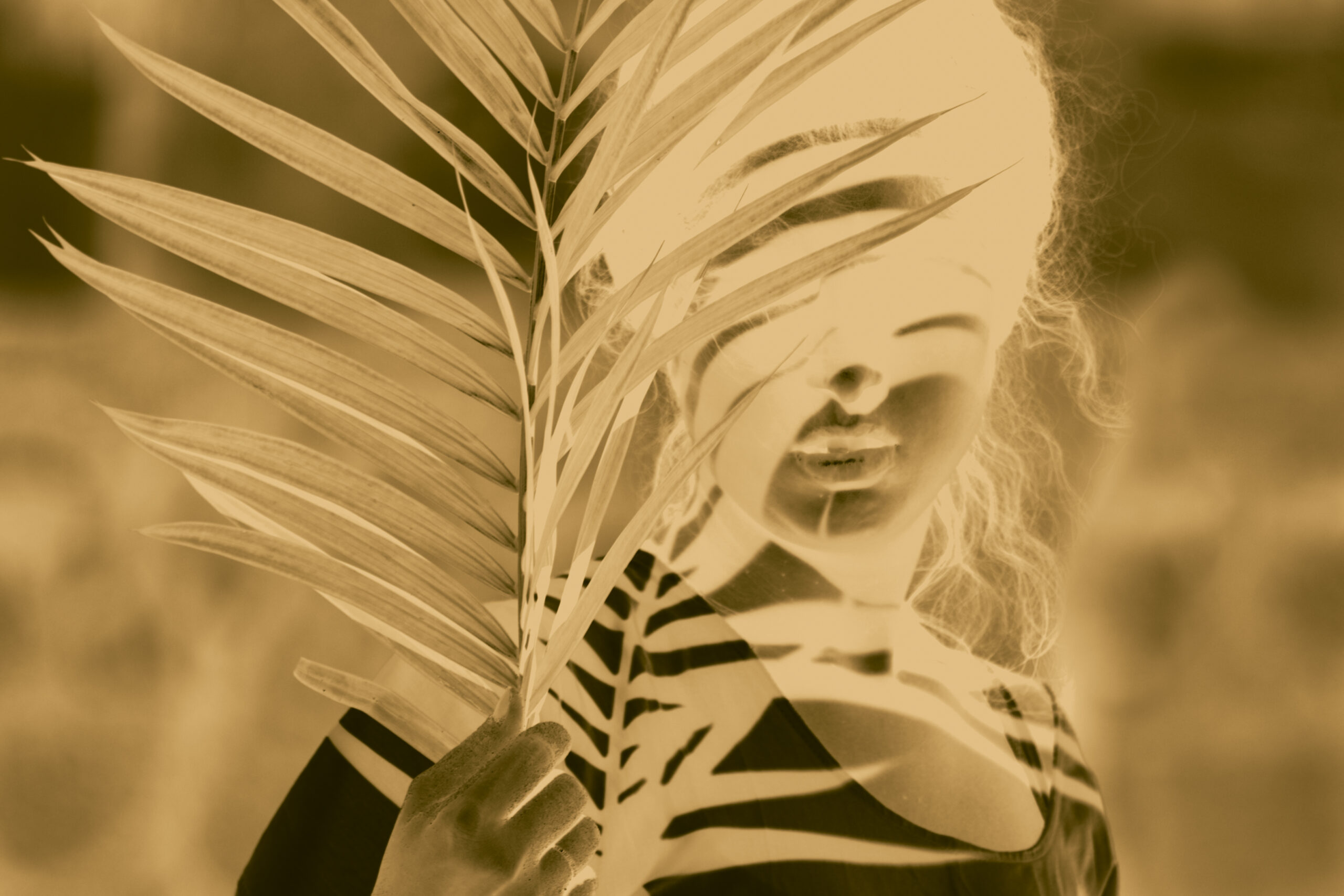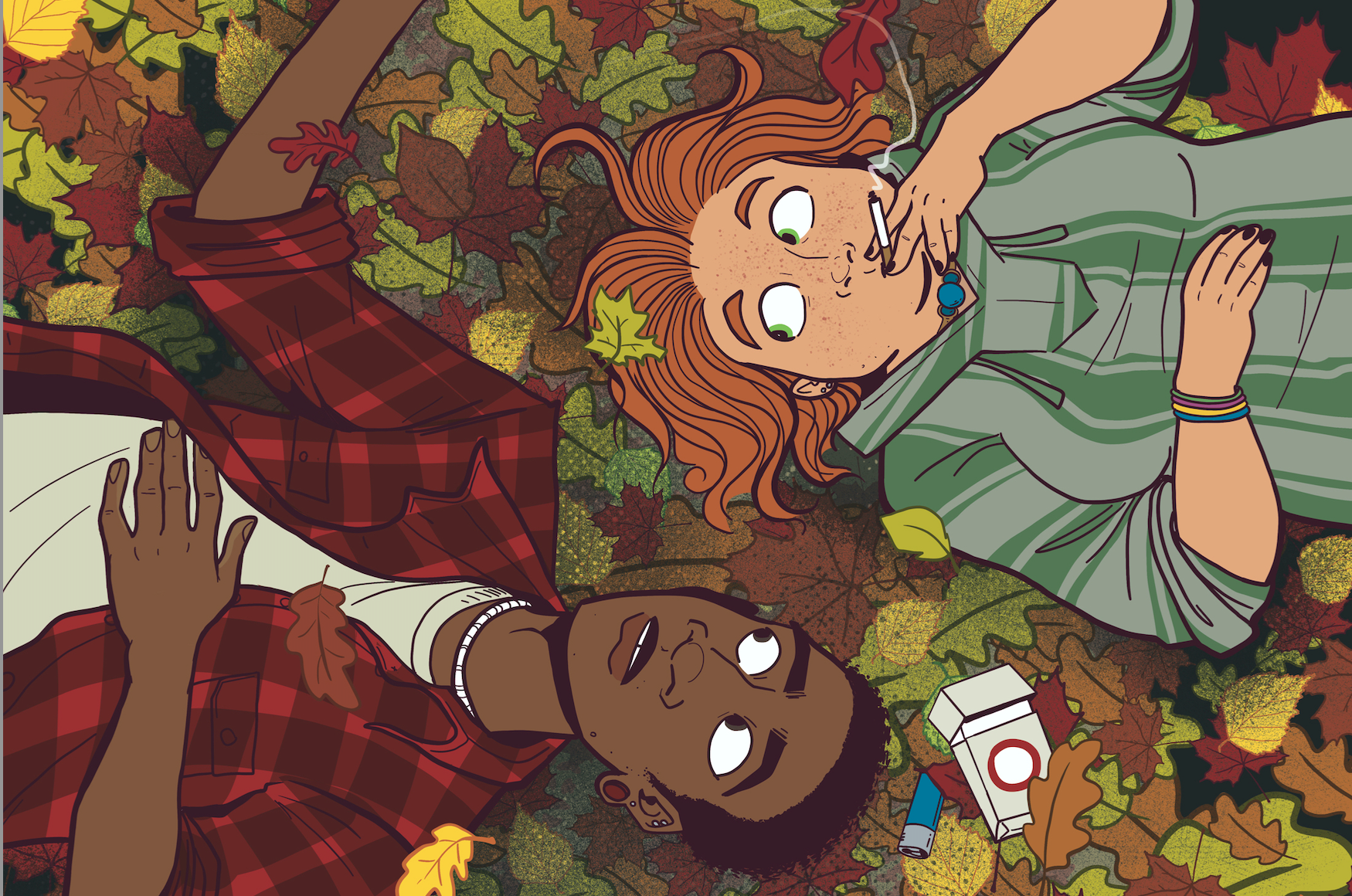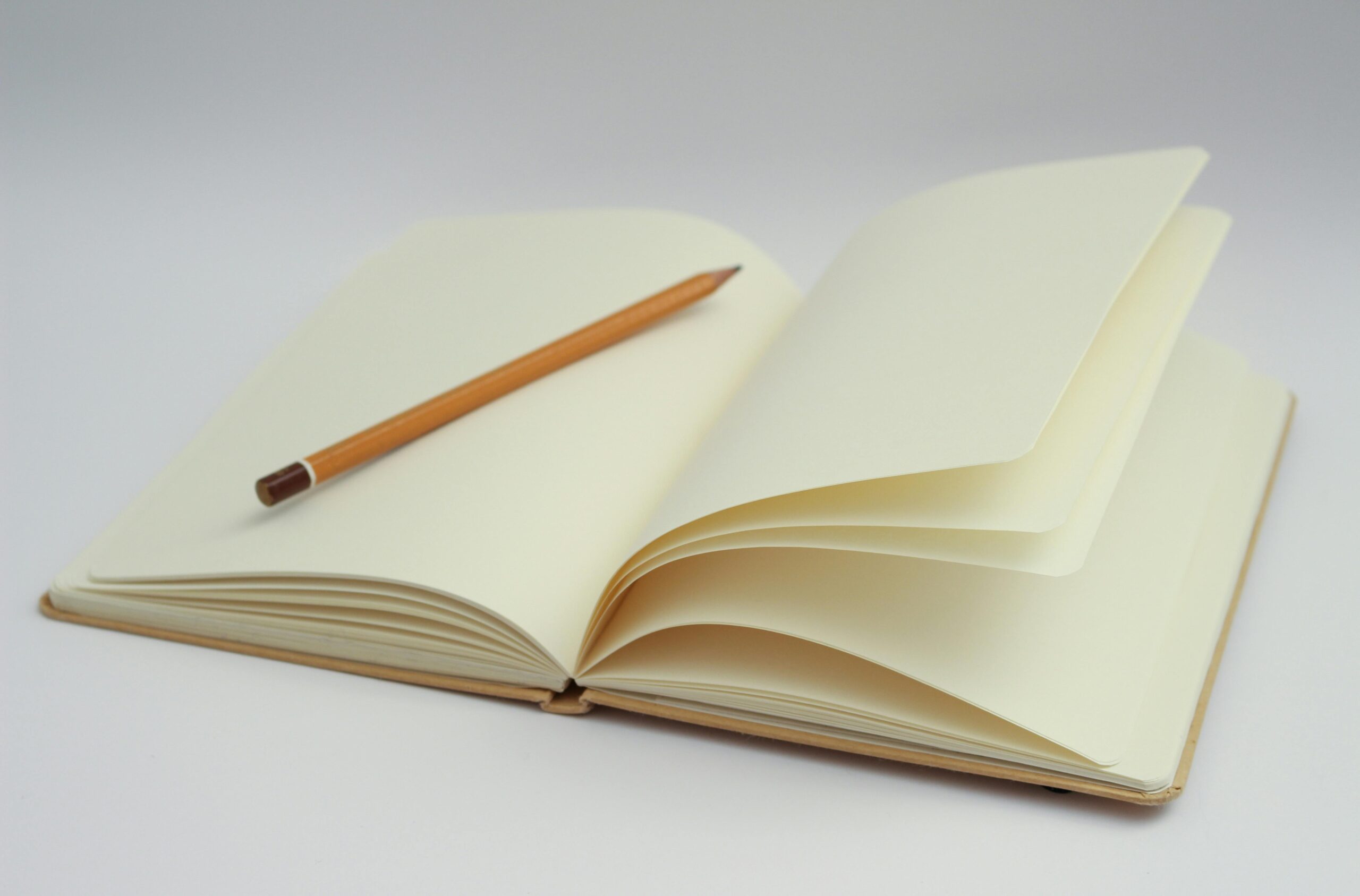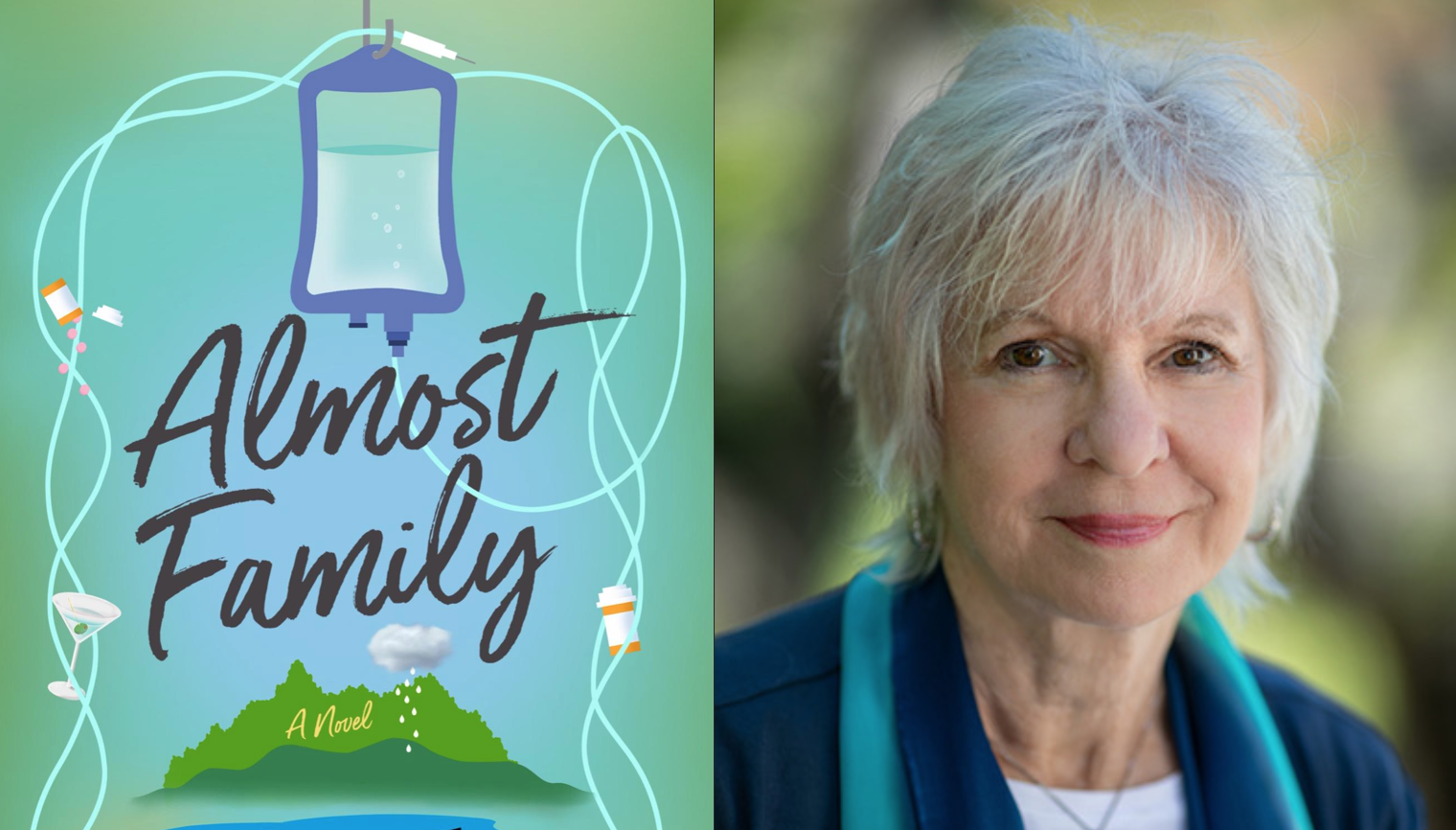
We’re living in a time where exploring identity and self through a distinctly female gaze is becoming more and more common. With mainstream media and entertainment historically being from a very narrow lens, and predominantly white and male, seeing more and more voices and narratives reflected back to audiences that are diverse and inclusive is really exciting.
An artist we have a girlcrush on right now is Alyssa Griego. She is a Los Angeles-based queer, Chicana multimedia artist, author and director who has just released a new book of poetry with an accompanying short film, titled, ‘Sad Girl Strong Woman’.
At the age of sixteen she began writing and performing spoken-word to cope with depression and suicide after she dropped out of high school. Later she began merging poetry and film together to promote social change and highlight her family’s experiences. The project promotes empowerment for women, provides visibility for survivors of sexual assault, and examines the spiritual journey of self love.
This book and film is meant to take the reader/viewer through so many raw emotions like hope, and lust, joy, anger, and despair ultimately to demonstrate that they are being heard, seen, and felt. Sad Girl Strong Woman’s whole concept is that anyone can become who they want to be or who they have always known they have been and that is whole without anyone. The poems and short movie scenes throughout the book examine identity, childhood, same-sex relationships, sexual, emotion, and physical abuse.
We spoke with Alyssa to learn more about her creative process, the themes she explores and what she hopes readers will draw from her work.
Tell us how the idea for ‘Sad Girl Strong Woman’ poetry book came about?
The book goes through chronological order so when I was writing these pieces I never knew they were all going to be connected to create a book. Once I sat there and looked through hundreds of poems I realized there were themes and cycles regarding the stages of love and growth. All these pieces were written about one person and of course any life altering incidents that occurred during those two years of my life.
They transcended me into a strong person or better yet allowed me to realize my wounds and rise to my own personal power. I understood that this book had to be created so that other people could also benefit and heal into themselves. I knew that this book was the only reason I was alive and I wanted others to feel that and know doesn’t matter the circumstances you can still rise stronger.
How long have you been writing poetry for and what drew you to this art form?
I have been writing for almost eight years now. I started writing when I was sixteen in order to deal with depression and loneliness. Poetry for me came naturally it just poured out of me which is a bit ironic given I had no formal training nor did I know I was using literary devices. I always struggled with not feeling like a strong writer or reader and that began at a very young age. So by the time I was in high school I believed I wasn’t good enough and even joked that I could never write anything. I never believed this would be my career. I was drawn to poetry because it was short and simple like music and I used music to heal myself.

The release of this book came about at a timely moment, while the #metoo movement is highlighting stories of sexual assault. Can you share why you wanted to specifically address this issue in your book?
It was never my intention to address the #metoo movement because I wrote that piece in 2015 before the movement exploded. The Brock Turner case is actually what triggered me later to write a few short pieces in the chapter reflection because that’s when I understood how everything had cracked me open. Since I put the book together with the idea to create an experience for the reader. That being what would it be like if a person (the reader) found a writer’s diary or place where they kept all their writings and went into the mind of a writer who doesn’t display his/her work to the world.
I wanted them to go on an adventure feel the writer and because of this there are literal dates from beginning to end. The piece I wrote just so happened to occur during these years of my life. At that time that poem was merely my soul speaking and hurting. I performed that piece once on my own in 2015 because I wanted women to know I had experienced it to and even though they didn’t talk about it we sort of gave one another the eye contact that confirmed the silence. It was also very important because before this occurred I was apart of a group of students from UCLA that went to lobby for the Uconsent prop.
At the time I was moved by other women’s stories earlier in 2015 and weirdly enough by the end of that year I too was a woman who was sexually assaulted. I went from an advocate to someone who experienced it first hand. At that moment I fully understood how serious the issue was on campuses and in general. It wasn’t until later did I realize this book demonstrated how I handled my sexual assault and it was by pretended it didn’t occur for a year then in later chapters reflecting and accepting it. I thought that was powerful because it was raw and unfiltered.

What are some of the other themes you explore in ‘Sad Girl Strong Woman’?
I would say loneliness vs. solitude, inner child healing, codependency, generational violence, sexuality, gender roles, spirituality over religion, institutional racism in the U.S., and the aftermath of the conquest of what is now known as Mexico/California and what that means to the Chicanx identity.
One of the main topics is finding self-love. Can you share with us your personal journey of self-love and acceptance?
I believe I am still on and am always going to be on this journey, but I will say acceptance is stripping our layers that are build from myths that cover our true selves. This journey for me is all about surrendering and lifting these veils. My main veil was fear of being seen and heard.
As a Queer Chicana Multimedia artist, why is it important to talk about identity in your work?
Without my identity I am truly nothing. I can only write what I know or have experienced. I can’t single out that I am gay, a woman, Mexican, and so forth because they are all intertwined. Each one of those “labels” are under attack and have always been so it is vital to just show up and be myself because that will hopefully inspire others to do the same. I just find it important that other people particularly young people see themselves in my art so they to can invoke their own power and strive for a life cultivated in self-love.

You also created a short film to go with the book. Can you tell us what you wanted to show in these 7 minutes?
I wanted to show a push in the art form and for people to understand I am more than words in a book but a completely different artist who loves film and music. Also wanted them to hear me speak the poems and understand that I sometimes completely change the delivery of my work whenever I perform. It was essentially created so they could continue on this adventure seeing this book as a script that can be turned into anything. The final thing I wanted them to feel was the ugliness and beauty of those years of my life. To me words are nothing without performance and visuals.
What do you hope readers will gain from reading ‘Sad Girl Strong Woman’?
Hope, love, growth, healing, inspiration, and motivation. Those are the affirmations I always ask the universe to deliver to the reader. ‘Sad Girl Strong Woman’ is a message stating you are not alone and I am here in spirit. I mainly just hope they feel that. Ultimately, I want the reader to know they are worthy of a fulfilling life. At least for the moments you are reading this book we are together as one. You have made that promise to yourself and me to continue to live.


















One thought on “Queer Chicana Artist’s New Poetry Book Explores Identity, Childhood, Relationships & Self-Love”